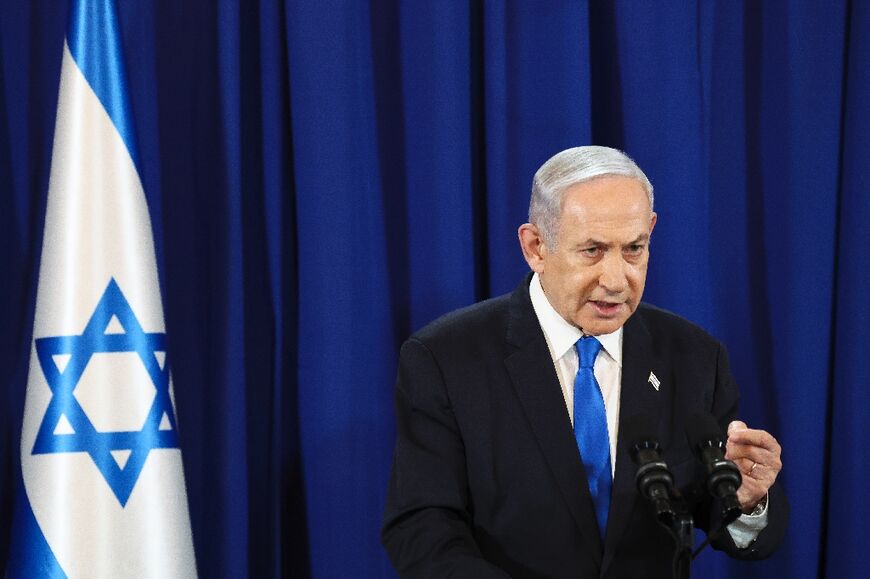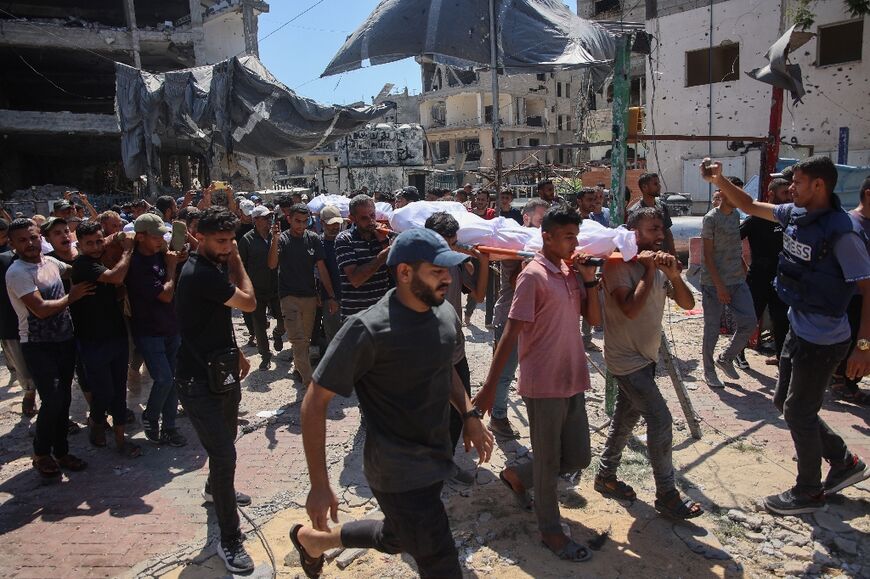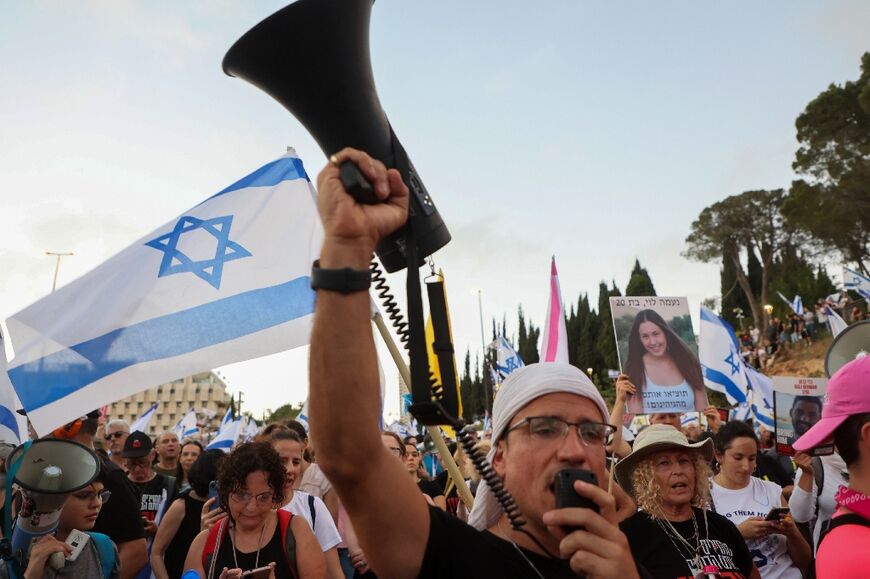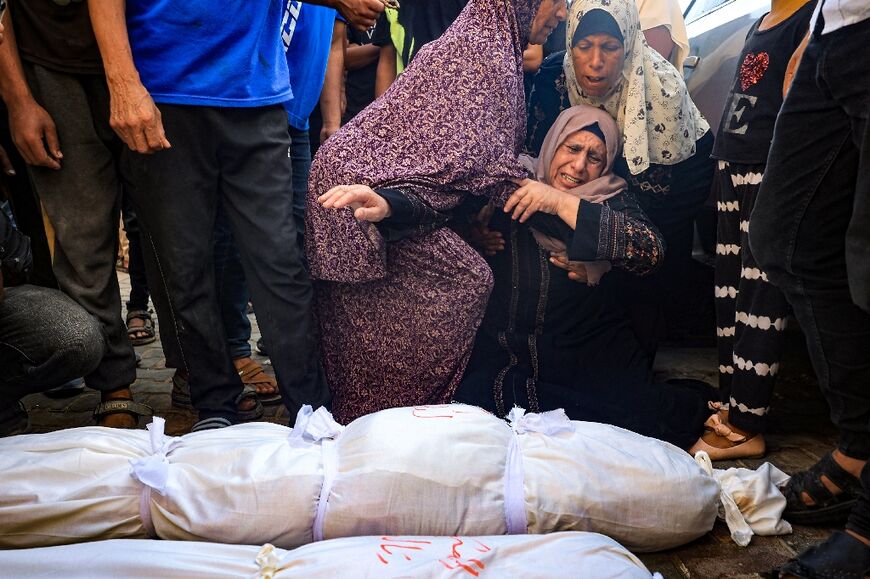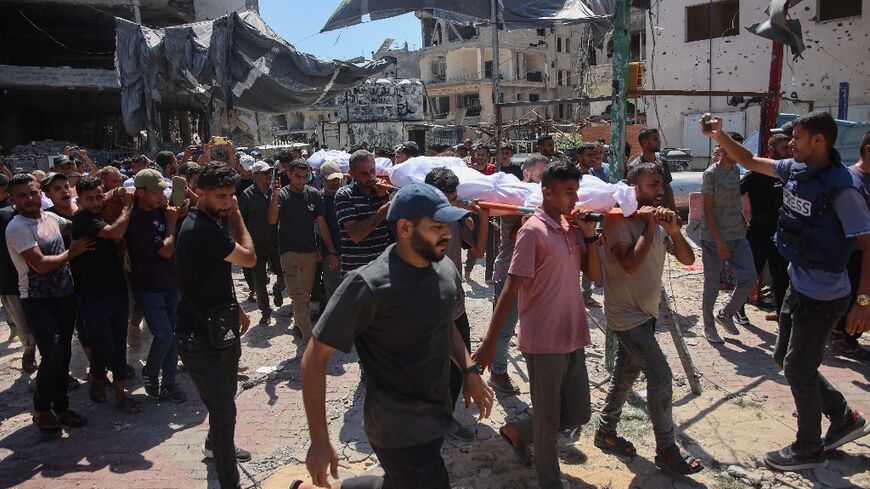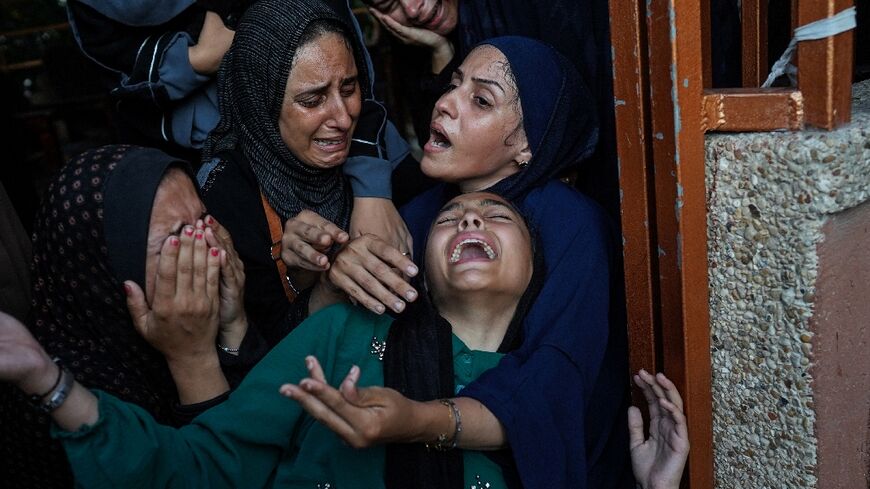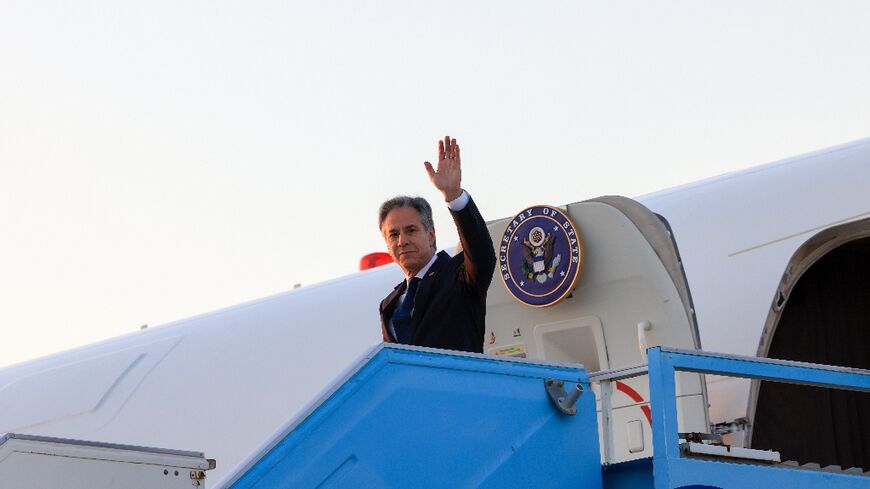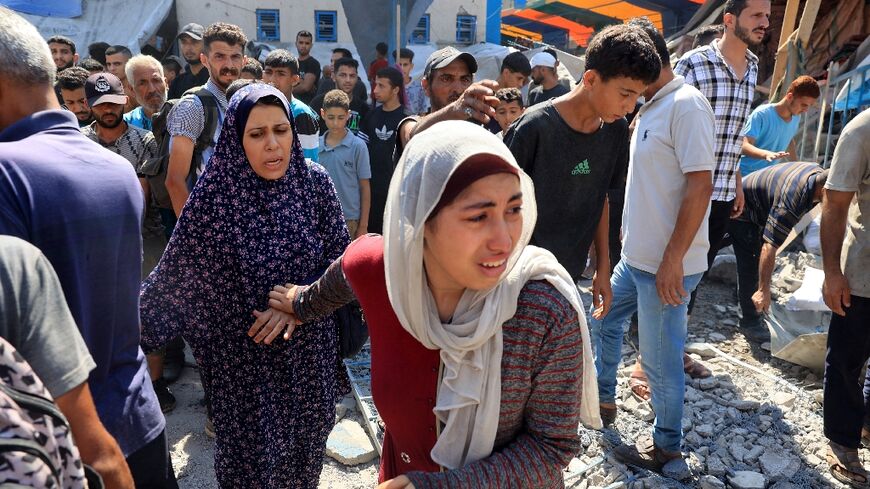Israel says targeted Hamas military chief, Gaza ministry reports dozens dead
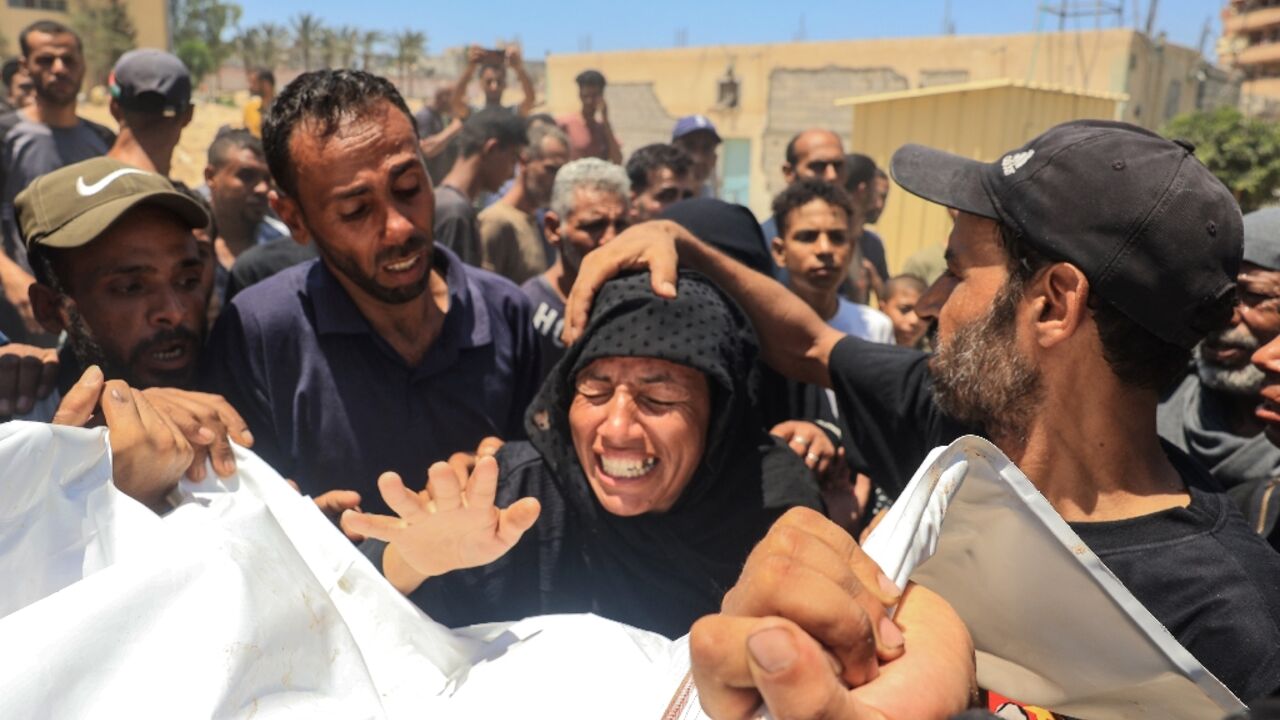
Israel said there was "no certainty" it killed Hamas's military chief Mohammed Deif in a strike Saturday on southern Gaza, where officials reported at least 90 killed in a displacement camp.
The Israeli military said it had targeted Deif and Rafa Salama, a brigade commander, calling them "two of the masterminds of the October 7 massacre" which sparked the war, now in its 10th month.
The pair's fate remained unclear, with Israeli Prime Minister Benjamin Netanyahu saying late on Saturday there was "no certainty" that either man was killed in the strike.
The deaths in Al-Mawasi, an Israeli-designated "safe zone" where aid groups said hundreds of thousands of people were sheltering, drew condemnation from governments across the region.
Egypt's foreign ministry said such "crimes... cannot be accepted under any justification whatsoever".
The health ministry in the Hamas-ruled Gaza Strip said there were at least "90 martyrs", with at least half women and children, and 300 people wounded in Al-Mawasi. AFP could not independently confirm the toll.
The Israeli military said of its attack targeting Deif that "the area that was struck is an open area, surrounded by trees, several buildings and sheds. It was not a tent complex, but an operational compound".
A Hamas statement rejected Israel's claim it had targeted Deif, saying it was intended "to cover up the magnitude of the horrific massacre".
Further north, heavy fighting has raged for weeks in and around Gaza City. On Saturday the civil defence agency said at least 20 people were killed in a strike on Al-Shati refugee camp.
In Al-Mawasi, AFPTV footage showed sirens wailing and smoke rising in the distance as men used blankets to collect victims. Some were clearly beyond help and lay dead on the road.
"What did we do?" a woman screamed in the street. "What did we do? We were just sitting near the beach."
- 'Rampant disregard' -
Israel in May had told Palestinians to move to a designated humanitarian area in Al-Mawasi as its troops moved into the nearby city of Rafah.
Since then, Israel has been accused of killing civilians in attacks on or near Al-Mawasi, including one in May which was blamed for starting a fire in a tent city that killed 45 people.
Philippe Lazarini, head of the UN agency for Palestinian refugees, UNRWA, described the area as "a sandy 14-square-kilometre (5.4-square-mile) agricultural land, where people are left out in the open with little to no buildings or roads".
"The claim that people in Gaza can move to 'safe' or 'humanitarian' zones is false", said Lazarini on social media site X.
The UN human rights office in a statement said Israel "continues to choose weapons with wide area effect in densely populated areas", suggesting "a rampant disregard for the safety of civilians".
An Israeli security source, speaking on condition of anonymity, said the strike showed Israel "will continue to target senior Hamas leadership" even as it "pursues negotiations for a hostage agreement".
Gaza's civil defence agency said heavy fire was preventing its teams from reaching the "many bodies" scattered in the streets.
"Every time people tried to get close to rescue others, they would strike," said Palestinian man Mahmoud Abu Akar.
In Israel, anti-government demonstrators again rallied on Saturday to demand a deal to free hostages still held in Gaza, with a four-day protest march from Tel Aviv reaching Jerusalem.
The war started with Hamas's October 7 attack on southern Israel which resulted in the deaths of 1,195 people, mostly civilians, according to an AFP tally based on Israeli figures.
The militants also seized 251 hostages, 116 of whom remain in Gaza, including 42 the military says are dead.
Israel responded with a military offensive that has killed at least 38,443 people in Gaza, also mostly civilians, according to a toll from the Gaza health ministry issued Saturday afternoon.
- 'Pressure' -
Israel and Hamas have engaged in months of indirect talks via Qatari, US and Egyptian mediators to reach a still elusive truce and hostage release deal.
Talks took place in Doha and in Cairo this week.
Netanyahu continues to insist that any deal must allow Israel to meet its war aims -- destroying Hamas as well as bringing home all the hostages.
US President Joe Biden has outlined a plan for a six-week truce during which hostages would be freed in exchange for Palestinians in Israeli prisons, followed by talks on a full end to the war.
On Thursday, he said: "That framework is now agreed on by both Israel and Hamas.
"There are still gaps to close, but we're making progress", he added.
On Saturday, Hamas official Bassem Naim said Netanyahu was the one "hindering the achievement of an agreement" and called on Biden to put "sufficient pressure" on the Israeli leader to secure a deal.
The war has sent tensions soaring across the region. Israel has traded regular cross-border fire with Hezbollah ally Hamas in Lebanon, while Yemen's Iran-backed Huthis have launched maritime attacks in a campaign they say is in solidarity with Gazans.
The Huthis' military spokesman Yahya Saree said on X following the Al-Mawasi strike that his group "will not hesitate to expand its military operations... until the aggression stops".


